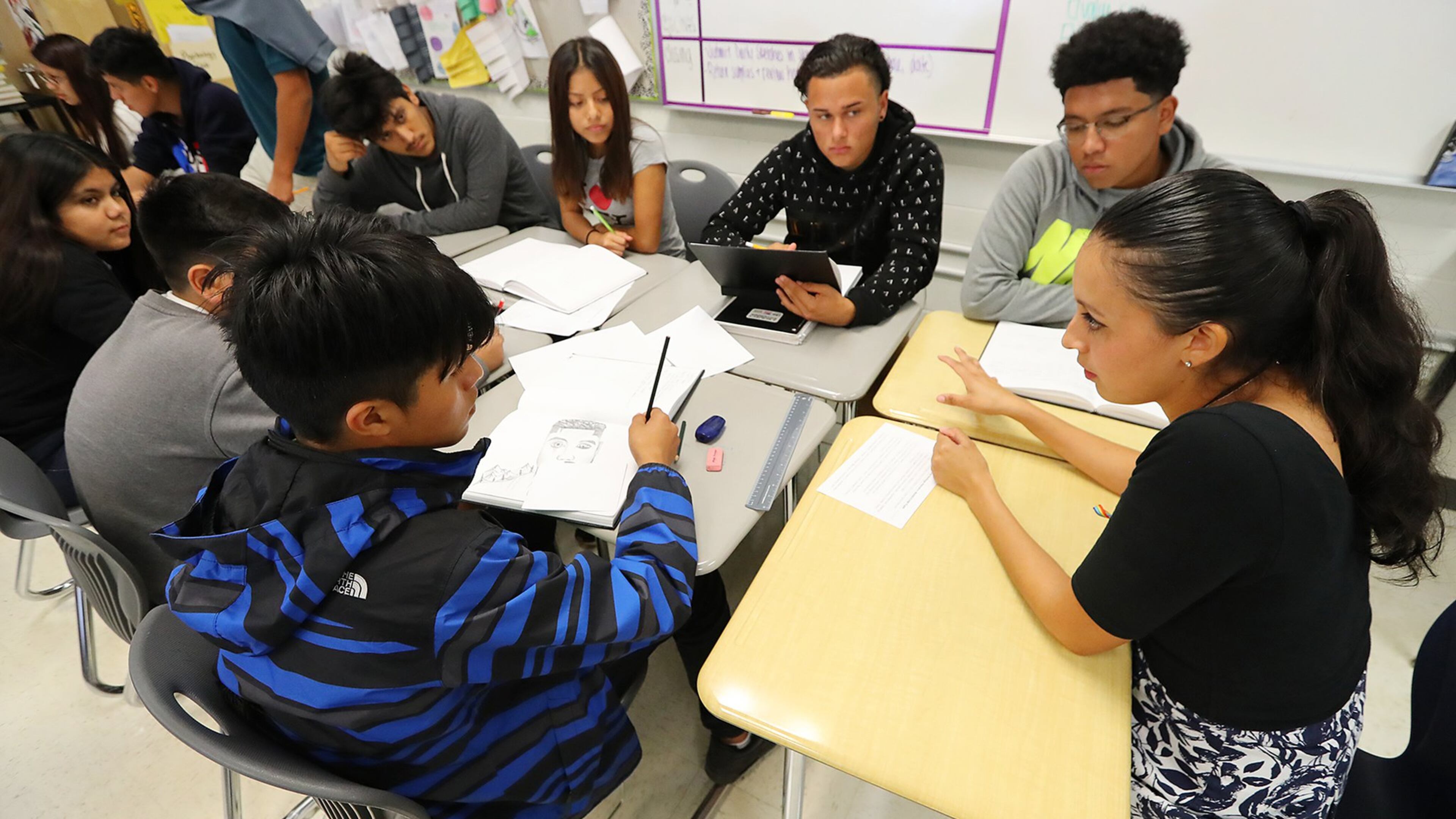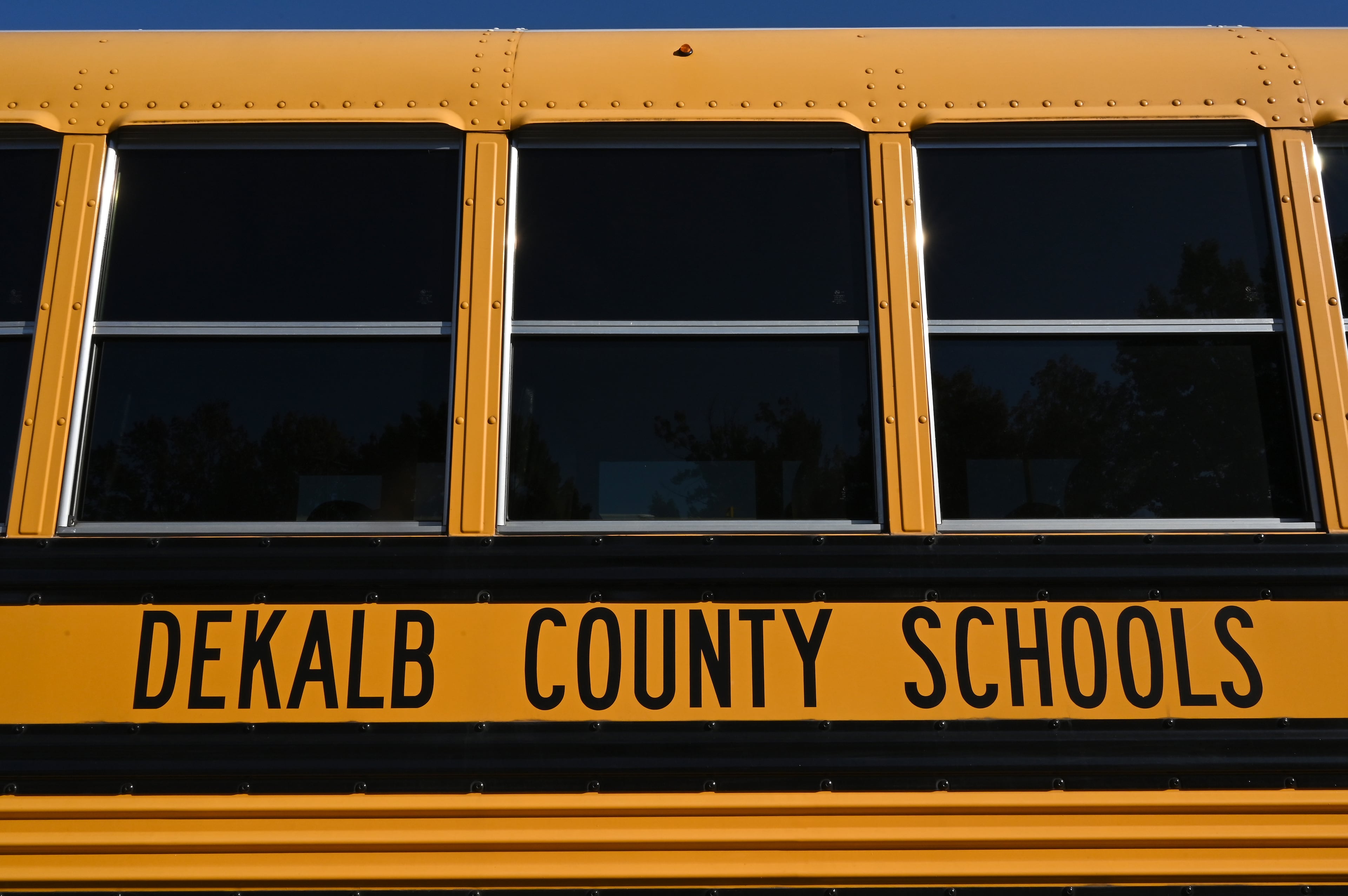Georgia schools and colleges brace for immigration changes

On his second day in office, President Donald Trump rescinded policies that prevented federal immigration officials from arresting undocumented immigrants in sensitive locations such as churches, hospitals and schools.
Some metro Atlanta school districts, colleges and universities said Wednesday they are trying to get legal clarity on what could happen on their campuses.
Charles Kuck, an Atlanta immigration attorney, said while U.S. Immigration and Customs Enforcement are allowed on public properties like schools and colleges, he doesn’t think they will make arrests there.
“I think the American public would react quite negatively to that, in that context and in the reality that we live in,” Kuck said. “I think Americans still have a soul and that we believe that everybody does deserve a second chance. So, I don’t see them doing it.”
If local police plan to make an arrest on the campus of a public school in metro Atlanta, they usually notify school district officials first. However, whether that kind of coordination would happen with ICE is murky. Some Atlanta school systems declined to comment on the president’s order until they receive more guidance.
Atlanta Public Schools said in a statement: “We’re evaluating the impact of these actions on our schools and our students. As always, APS will continue its commitment to providing a safe and welcoming learning environment for all of our students.”
Cobb County Board of Education Chairman David Chastain said his district would follow the law, but added that it’s too early to comment on what it would mean for the state’s second-largest school system.
“We know where a child lives, but we don’t know anything about their (immigration) status,” he said. “None of the schools are concerned with that sort of thing. I understand where the president’s coming from, but we have to think about what’s best for our kids first. These are adult issues.”
Chastain, a Republican, said the school board has not discussed any potential policy changes.
Some colleges declined to comment Wednesday about Trump’s plan. Morehouse College President David A. Thomas, though, said in an interview with The Atlanta Journal-Constitution he is deeply concerned about the federal policy.
“If immigration services were to show up in Morehouse, we would not cooperate. If they were to show up and want to investigate and collect our students who may not be documented, we would not cooperate with that process, or at least I would not authorize my staff to cooperate, because I do think that it’s not a moral practice, especially when young people are essentially trying to put themselves in the position to be better and significant contributors to our society, which is what going to college is really about,” Thomas said.

Outside of Georgia, school districts in states like Colorado and Connecticut have issued guidance in case of unexpected visits from ICE. A notice from the school superintendent in Bridgeport, Connecticut, outlines how schools should respond to agents arriving on campus.
“Federal immigration activities are strictly prohibited on Bridgeport Public Schools property, transportation routes, or during school activities without prior approval from the Superintendent,” the statement says. “No ICE agents or government officials can enter school buildings, buses, or attend school events without prior authorization.”
A charter school network in Denver lists steps undocumented families can take to protect themselves, including developing a family preparedness plan and updating their emergency contact information.
Kuck said he’s similarly advising clients to know their rights.
“If an ICE agent talks to you, you have no legal obligation to respond to them,” he said. “You have no legal obligation to produce paper. You have no legal obligation to allow them into your house without a warrant signed by a judge. Even if you’re undocumented, every right in the Constitution is given to you ... in your personal life.”
Kuck added that he believes Trump’s order is “more bark than bite.”
Yehimi Cambrón hopes so. Her parents moved to Atlanta from Mexico when she was about 8 years old. She graduated from Cross Keys High School in DeKalb County. Because undocumented students were banned from attending some state colleges and were required to pay out-of-state tuition rates at others, she received a scholarship to the private Agnes Scott College in Decatur, graduating in 2014.

Through an Obama-era program called Deferred Action for Childhood Arrivals, Cambrón and hundreds of thousands of others in the U.S. received temporary relief from deportation. Obtaining DACA meant she could legally work in the U.S. and obtain a driver’s license.
She became an art teacher at Cross Keys in 2017, but left a few years later and is now a full-time artist studying in Chicago. She bristles when she hears statements like the one from a Department of Homeland Security spokesperson, who referred to undocumented immigrants as “criminals.”
“I just don’t know what these people imagine we’re doing,” she said. “We literally are just trying to exist and go to school and better ourselves, and it’s so hard as an educator to convince your students to fight for their future, to have dreams, when everything around them is telling them that they don’t deserve it.”
Here’s what some of metro Atlanta largest school districts are saying about the Trump administration’s plan:
Atlanta Public Schools
We’re evaluating the impact of these actions on our schools and our students. As always, APS will continue its commitment to providing a safe and welcoming learning environment for all students.
DeKalb County Superintendent Devon Horton
Considering recent federal actions, I want to assure you that the Board of Education and I remain committed to the safety and success of all students in the DeKalb County School District.
In accordance with federal law, DCSD upholds every child’s right to a public education, complies with all legal requirements, and protects student privacy. Student safety remains our top priority. To that end, I have directed a team of district leaders to convene regularly to monitor federal changes and review any guidance on immigration issues from federal and state authorities as it becomes available. This team will also compile resources and gather information to support our schools and families.
We have informed our staff that if immigration authorities visit their school, they should be directed immediately to a school administrator, who will then contact the DCSD Police Department and document the visit. As with any unauthorized visitor, entrance beyond the main office and access to students or their information is prohibited without a court order or exigent circumstances.
DCSD is committed to ensuring that our schools remain a safe and welcoming environment for all students.
Gwinnett County Superintendent Calvin Watts
We understand that recent national conversations to immigration policies have caused concern and uncertainty for many in our community. Discussions of mass deportations and changes in regulations for federal immigration authorities have understandably raised fears among some of our students, families and staff. These concerns affect individuals and the overall sense of safety and security essential for effective teaching and learning in our schools.
At Gwinnett County Public Schools, we remain dedicated to fostering a learning environment where each and every student feels valued, respected and supported in a space that prioritizes their well-being. It is important to understand that, by law, a child’s immigration status (or that of their parents) does not affect their right to receive a public education. As always, we are focused on providing a safe and welcoming learning environment where every student can thrive.
In GCPS, the safety and well-being of our students is always our top priority. While we acknowledge this diversity of perspectives in our community, we stand united in our responsibility to uphold the dignity, rights and safety of each and every student. We will continue to follow our school safety protocols, district policies and state and federal laws, and appropriately executed judicial orders which clearly define who is permitted to contact students during the school day. We are here to assist students and families in every way we can, and we encourage to reach out to your child’s school office at any time for support.





